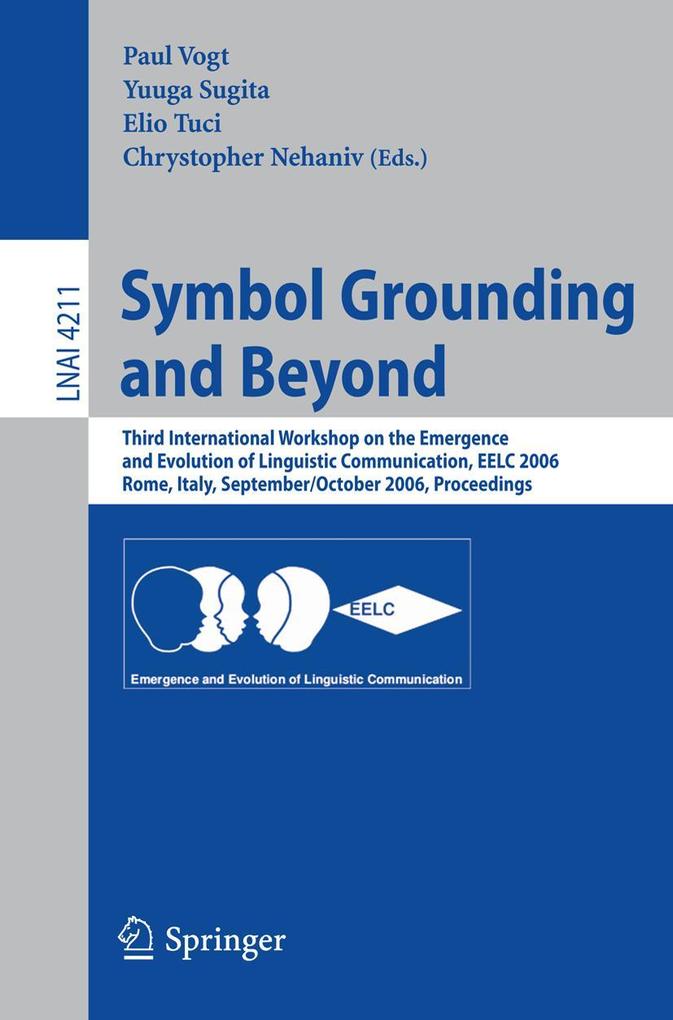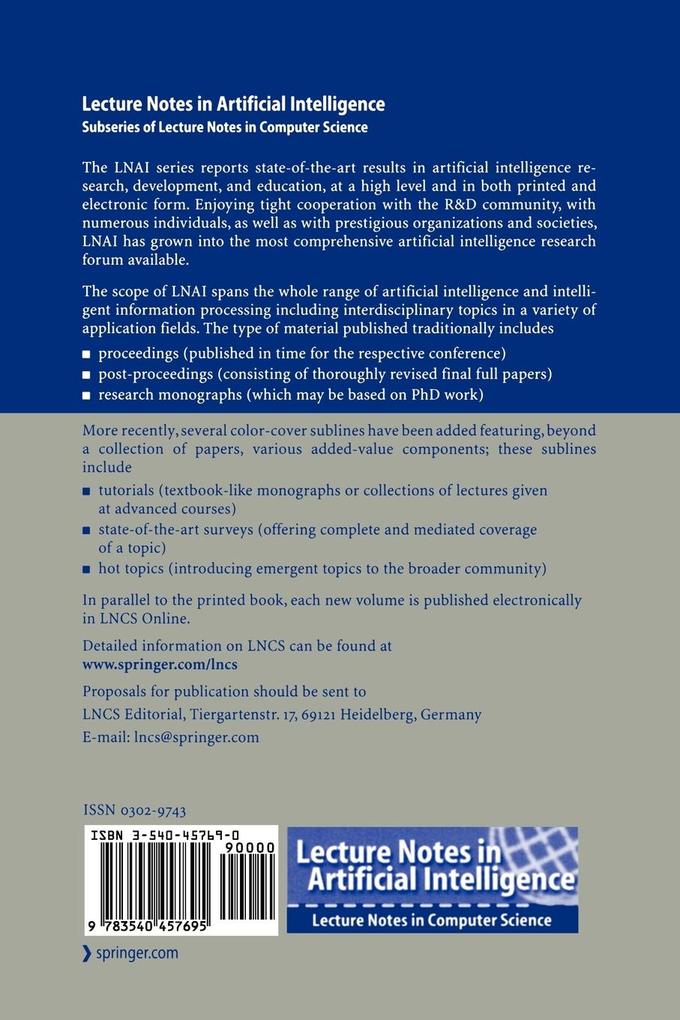A Hybrid Model for Learning Word-Meaning Mappings.- Cooperation, Conceptual Spaces and the Evolution of Semantics.- Cross-Situational Learning: A Mathematical Approach.- Dialog Strategy Acquisition and Its Evaluation for Efficient Learning of Word Meanings by Agents.- Evolving Distributed Representations for Language with Self-Organizing Maps.- How Do Children Develop Syntactic Representations from What They Hear?.- How Grammar Emerges to Dampen Combinatorial Search in Parsing.- Implementation of Biases Observed in Children's Language Development into Agents.- Lexicon Convergence in a Population With and Without Metacommunication.- Operational Aspects of the Evolved Signalling Behaviour in a Group of Cooperating and Communicating Robots.- Propositional Logic Syntax Acquisition.- Robots That Learn Language: Developmental Approach to Human-Machine Conversations.- Simulating Meaning Negotiation Using Observational Language Games.- Symbol Grounding Through Cumulative Learning.- The Human Speechome Project.- Unify and Merge in Fluid Construction Grammar.- Utility for Communicability by Profit and Cost of Agreement.
Inhaltsverzeichnis
A Hybrid Model for Learning Word-Meaning Mappings. - Cooperation, Conceptual Spaces and the Evolution of Semantics. - Cross-Situational Learning: A Mathematical Approach. - Dialog Strategy Acquisition and Its Evaluation for Efficient Learning of Word Meanings by Agents. - Evolving Distributed Representations for Language with Self-Organizing Maps. - How Do Children Develop Syntactic Representations from What They Hear? . - How Grammar Emerges to Dampen Combinatorial Search in Parsing. - Implementation of Biases Observed in Children s Language Development into Agents. - Lexicon Convergence in a Population With and Without Metacommunication. - Operational Aspects of the Evolved Signalling Behaviour in a Group of Cooperating and Communicating Robots. - Propositional Logic Syntax Acquisition. - Robots That Learn Language: Developmental Approach to Human-Machine Conversations. - Simulating Meaning Negotiation Using Observational Language Games. - Symbol Grounding Through Cumulative Learning. - The Human Speechome Project. - Unify and Merge in Fluid Construction Grammar. - Utility for Communicability by Profit and Cost of Agreement.











